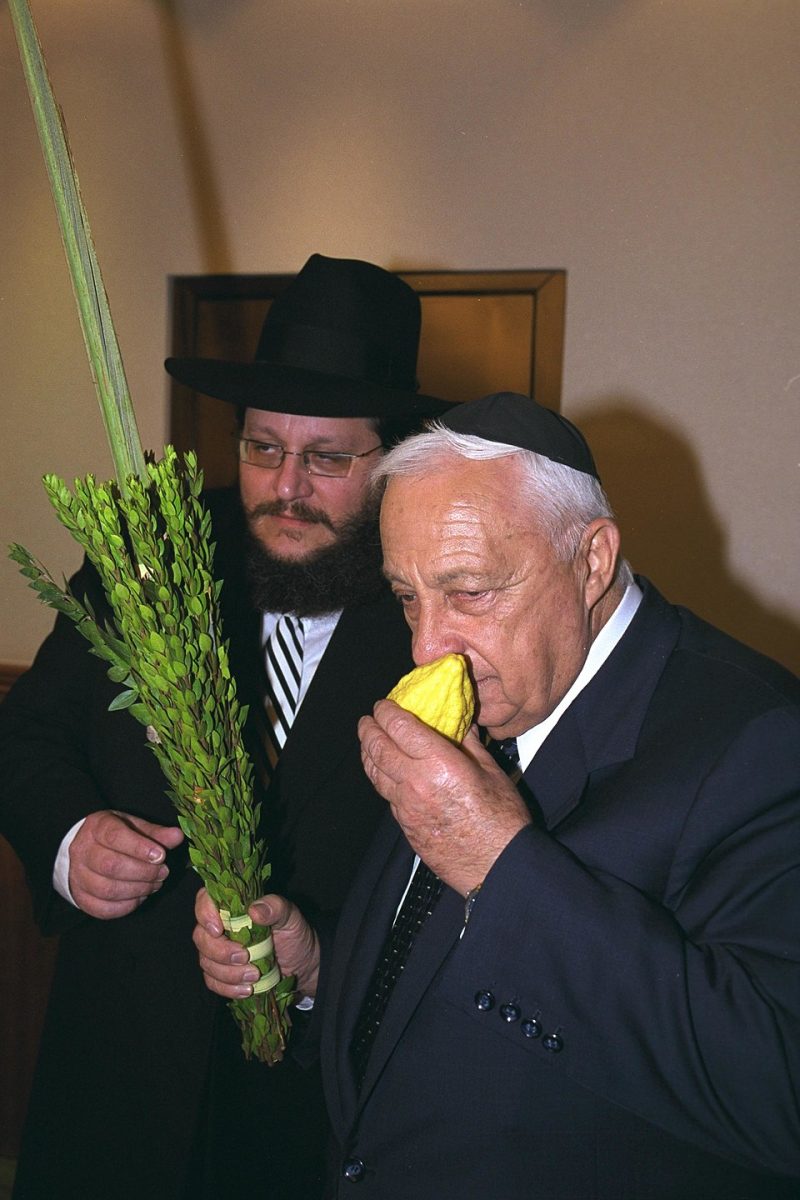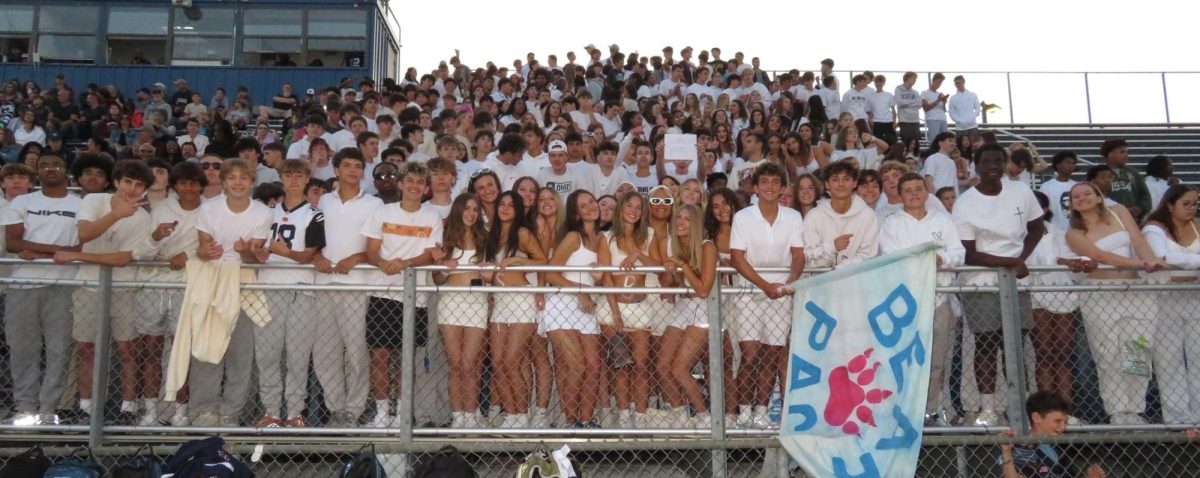There are students in their classes that always seem to be going above and beyond. These people are considered overachievers; from an outside perspective, they’re always busy and seem to be succeeding in everything. A majority of Berkley students commit to multiple activities such as sports, clubs, jobs, and/or leadership positions all while maintaining good grades. How do they handle their time? Why would they do so much and make themselves so busy?
Sophomore Mia Mracna has a rigorous schedule consisting of AP Calculus BC, AP Government/Economics, AP Biology, Spanish four, Honors English 10, and Marketing this year. In addition to this, she is on Berkley’s varsity girl’s swim team in the fall, plays lacrosse for Berkley in the spring, and is on two teen council boards, including the Huntington Woods Teen Council and the With Youth for Youth Council of Michigan.

Mracna states her motivation comes from her parents: “They help me a lot and motivate me to do my best.” She explains further by saying, “If I need help, my parents help me study or give me ways to handle my stress.” Additionally, her peers encourage her to sign up for clubs that they can participate in together. For example, she joined the YOUth Empowerment Club here at Berkley due to some of her friends creating it and others being members. Although having this support system is crucial for her, she also admits that she is very focused on trying to make everything the best it can be. She shares that she tries to “block out external pressure because I think it doesn’t match up with my internal motivation, which supports me the most. Most of the time, external pressure just makes things more stressful.” To make all of this possible, she expresses, “I try to focus a lot on time management.” One way she accomplishes this is by focusing on one thing and getting her homework done during class or soon after school to not stay up too late.
Mracna also communicates that our school has helped her in becoming an overachiever, “Berkley has a wide variety of classes and clubs to be involved in and allows you to take more difficult classes.” In addition to this, Berkley doesn’t give students access to their class rank, which Mracna appreciates because “you don’t have to be competing with or comparing yourself to your peers. It also gives you the opportunity to take classes you are actually interested in, instead of whatever one will make your ranking higher.”
Junior year is infamously known to be one of the most difficult, but junior Collin Richardson is keeping up with his heavy workload. This year, Richardson’s school schedule consists of AP World History, AP Calculus BC, AP Chemistry, Honors English 11, French four, and Sports Marketing, plus competing in DECA. He is in the National Honor Society (NHS), the French National Honor Society (FNHS) and works at least once a week at Ray’s Ice Cream while doing varsity sports throughout the school year consisting of football, powerlifting, and lacrosse.
Richardson describes that his motivation comes from himself, “I am very dedicated to school and sports. Football also encourages me to do better in school because a lot of colleges I’m trying to get recruited by expect good grades while playing a sport.” To get everything done, Richardson has a set schedule he follows after school. He explains, “Football is right after school, so after that, I eat dinner, then immediately do homework. I leave the nighttime to relax or just go to bed.”
Similar to Mracna, Richardson believes Berkley supports him in having this busy schedule. He says, “I don’t think the amount of homework we get is too much, and we don’t have finals,” which Richardson implies takes another stressful thing off of a student’s workload. He adds on, “I feel like taking the AP classes at Berkley will prepare me for college and make the transition easier.” But, Richardson doesn’t appreciate Berkley taking away students’ ability to see their class ranking. He mentions, “The competition would push me to do better.” He continues, “It would be beneficial because it is something colleges will sometimes ask to get recruited. I’ve had to fill out questionnaires, and it’s something they care and ask about.”
Finally, I interviewed senior Ruqaya Siddiqi, who is taking Project Advance, AP Calculus AB, AP Literature, AP Environmental Science, and Yearbook. In addition to this, she is one of Berkley’s dance team captains, does dance for Studio A two to three times a week, and is in NHS, FNHS, and Science National Honor Society (SNHS). She has also been the business manager for 2 years for yearbook which deals with all the ads in the yearbook.

Siddiqi gets her motivation from a variety of places, explaining, “Most of it comes from myself; I’m just very academically focused. In addition to that, though, one of my sisters went to NYU, so I have that push of wanting to live up to her.” Evidently, family seems to be a source of motivation for multiple overachievers. She goes on, “I like to push myself to do challenging things because I am very determined. Without doing activities and learning new things, I can’t gain new interests. By taking hard courses and having a packed schedule, I’m really able to enjoy each day as I build connections with the people around me.”
Similarly to the other overachievers, Siddiqi’s time management skills are crucial to her success. She says, “I try to finish my academics during school, and after I get home, I take a little bit of time to relax before doing more, so I’m not rushing anything. After dancing, I take a little more time to look over homework and complete things.” This differs from Richardson because instead of doing everything and then taking some downtime, she takes planned breaks throughout her night. Motivating herself to complete everything is easier for her when the things she is pushing herself to do well on are things she enjoys; she describes, “Being very determined contributes to my success, and you have to want to do something to be an overachiever.”
Based on her experience, Siddiqi is passionate about Berkley being very supportive. She begins with her opinion that “Berkley is pretty good about supporting us with the amount of homework we get; most classes don’t give us too much, which is good, so we have more time after school for other things. It gives us time to overachieve in multiple things.” Continuing, Siddiqi thinks Berkley has assisted her interest in English classes, especially through our staff. She reveals, “The English teachers have been very helpful and taught me a lot; they’ve especially helped with my college essay. I’ve grown as a student from the time I was a freshman and understand how to manage my classes, which I think makes me really prepared to take the next step in college.” Similar to Mracna, Siddiqi thinks that our lack of class rankings is beneficial because “you can base your success on how you’re doing individually and your own goals instead of worrying about what others might think and about what number you’re ranked.”
As we can see, overachievers here at Berkley might have different sources of motivation, but are very devoted to their success. Some rely on external rationale and others internal, but they all designate some of their success to themselves and their time management skills. Another thing they agree on is that Berkley gives students the option to become involved and successful through the opportunities given to us. Students should be very grateful for and encouraged to use these resources to become their definition of an overachiever.








